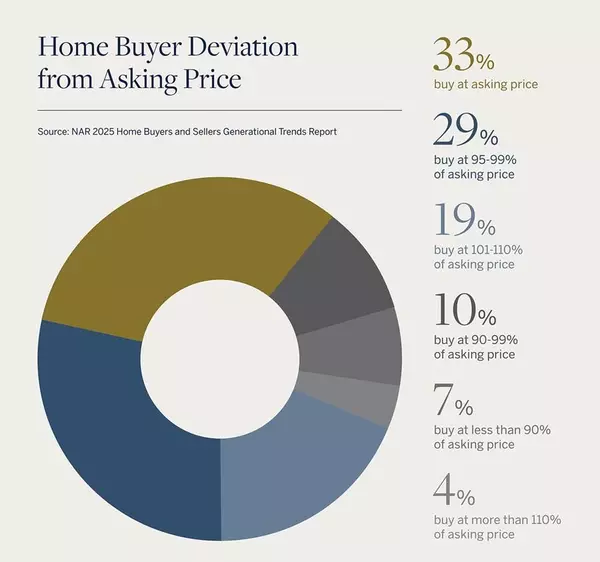The better investment?
The summer season is here and our market continues to demonstrate strong momentum, with key indicators pointing to a resilient market:
- Average days on market remain low at just 16 days, reflecting sustained buyer demand across the region.
- While inventory has increased by 15%, supply remains tight relative to historical norms, keeping pricing competitive in most segments.
- Sales are up 18% year-over-year, driven in part by demand for high-end properties and growing investor interest.
- Our local economy is expanding at a pace five times faster than the rest of the state.
- Within select communities, builders have adjusted expectations, with more price reductions and concessions now entering the conversation.
- With increased inventory, a growing economy, and strong demand, especially in the luxury and investment segments, our market continues to offer great opportunities.
Clients often ask whether it's smarter to invest in real estate or stocks. The answer depends on your goals, but in many cases, real estate provides a more stable, tangible, and lifestyle-enriching return, especially in a high-demand vacation market like Coastal Delaware.
It's also important to acknowledge that second homes often serve a dual purpose, functioning as both investments and personal retreats.
Many of our clients buy vacation homes they also enjoy with friends and family, making it harder to calculate ROI in the same way you'd evaluate a stock portfolio. You're not just buying performance; you're buying experiences, legacy, and lifestyle.
Yet, looking solely at the numbers, real estate holds its own and often outperforms.
Strong protection against inflation
A 2023 study published in The Journal of Real Estate Finance and Economics examined U.S. housing market data from 1975 to 2022 to determine real estate's effectiveness as an inflation hedge. The study found that residential real estate offers significant inflation protection, particularly against expected inflation, over long time horizons.
While equities were also evaluated, the findings suggest that real estate consistently outperforms stocks in hedging long-term inflation risk. This effect is pronounced in periods of stable economic growth, where housing serves as a stronger and more reliable inflation hedge than the stock market.
Built-in tax advantages
Tax treatment remains one of the most compelling advantages of real estate over other asset classes.
Real estate investors benefit from multiple forms of tax efficiency. First, depreciation allows investors to deduct a portion of a property's value each year, thereby reducing taxable income, even if the property is appreciating.
Investors can also defer capital gains through a 1031 exchange, which allows proceeds from the sale of one investment property to be reinvested into another "like-kind" property without triggering an immediate tax bill. This deferral strategy enables long-term wealth accumulation and portfolio growth.
Additionally, passive income from real estate often qualifies for the 20% Qualified Business Income (QBI) deduction, offering further tax savings for many investors under the current tax code.
Together, these tools make real estate one of the most tax-efficient ways to build wealth, offering advantages not typically available to stock investors.
Rental income supports long-term returns
Real estate investments offer the unique advantage of generating consistent income while the asset appreciates. Rental properties provide steady cash flow that can offset expenses, mitigate volatility, and enhance long-term returns.
In 2023, the median monthly gross rent in the United States rose to $1,406, marking a 3.8% increase — the most significant annual rise since at least 2011, according to U.S. Census Bureau data. This growth outpaced the 1.8% increase in median home values during the same period.
Moreover, well-managed rental properties often deliver annual returns between 6% and 10%, excluding property appreciation. As rents typically rise with inflation, income-producing real estate serves as both a stable income source and an inflation-aligned investment.
Leverage and real-world utility
While the stock market has historically delivered around 10% average annual returns (including dividends), real estate typically produces 4% to 8% annually in price appreciation.
However, that figure doesn't account for leverage, which allows real estate investors to control a larger asset with less upfront capital. A 20% down payment secures the full value of a home, amplifying gains when the property appreciates.
In addition, real estate offers something that no stock can: whether you're enjoying the home yourself or offering it to family, it delivers personal value and flexibility alongside financial return.
In volatile times, many investors find comfort in the reliability of real assets, especially when those assets double as weekend getaways, retirement strategies, or legacy homes for the next generation. And in a market like ours, where lifestyle and location drive consistent demand, real estate continues to offer compelling upside.
If you're evaluating your investment options, I'm here to help. -Henry
Categories
Recent Posts











"I am committed to supporting clients in making informed real estate decisions, providing superior service, and generating results. Please give me a call or email if you have questions; I'm here to bring value, insight, and efficiency to your real estate objectives." -Henry Jaffe
